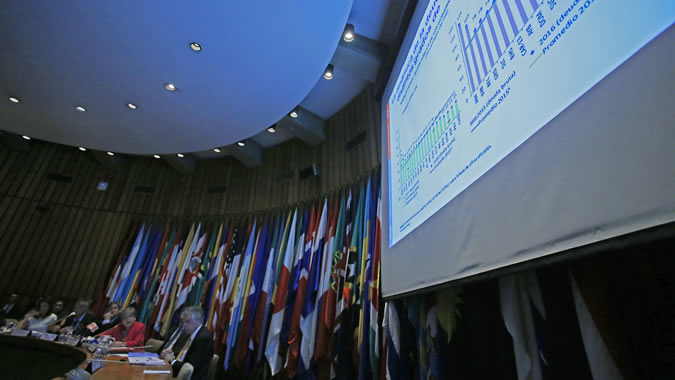Economic Activity in Latin America and the Caribbean Will Expand 1.1% in 2017
Work area(s)
ECLAC updated its growth projections for the region’s countries.

The Economic Commission for Latin America and the Caribbean (ECLAC) updated growth projections for economic activity in the region in 2017 and forecasts a 1.1% average expansion for this year, the United Nations body stated today in a press release. This projection is slightly below the 1.3% that was estimated in December 2016.
As in previous years, in 2017 the growth dynamics will vary between countries and subregions, ECLAC indicates. The economies of South America, specialized in the production of primary goods – especially oil, minerals and food – will record average growth of 0.6%. This represents a slight downward revision to the 0.9% projected last December. The growth dynamic in 2017 contemplates a rise in external demand for these economies (higher growth is expected for the trading partners of the subregion’s countries) and in the prices for basic products, which will be higher on average in 2017 than they were in 2016.
Meanwhile, for Central American economies the growth rate is forecast at 3.6% in 2017, compared with the 3.7% projected in December. This is explained primarily by the resilience seen in domestic demand, which is expected to be the principal motor of growth this year, along with a good growth forecast for these economies’ main trading partner: the United States.
For the English- or Dutch-speaking Caribbean, average growth is forecast at 1.4% in 2017, slightly above the rate projected in December (1.3%).
According to ECLAC, to sustain the higher growth expected in 2017, countries must stimulate greater dynamism in investment and increase productivity via innovation, with environmental sustainability and while protecting employment. In this context, investment in infrastructure must play a fundamental role since it serves as the foundation of sustainable growth.
Furthermore, ECLAC indicates that it is necessary to strengthen social and productive investment in a framework of smart fiscal adjustments. In this sense, officials should strive for sustainability in public finances in the region but in the context of policies that take into account both the impact on long-term growth capacity, and the social conditions of the region’s inhabitants.
Related content

Latin American and the Caribbean Will Resume Subdued Growth in 2017 Amid Uncertainty about Global Economy
After two consecutive years of decline, the region will grow by 1.3% in the upcoming year in a complex international scenario, according to ECLAC’s new projections.
Country(ies)
- Latin America and the Caribbean
Contact
Public Information Unit
- prensa@cepal.org
- (56 2) 2210 2040